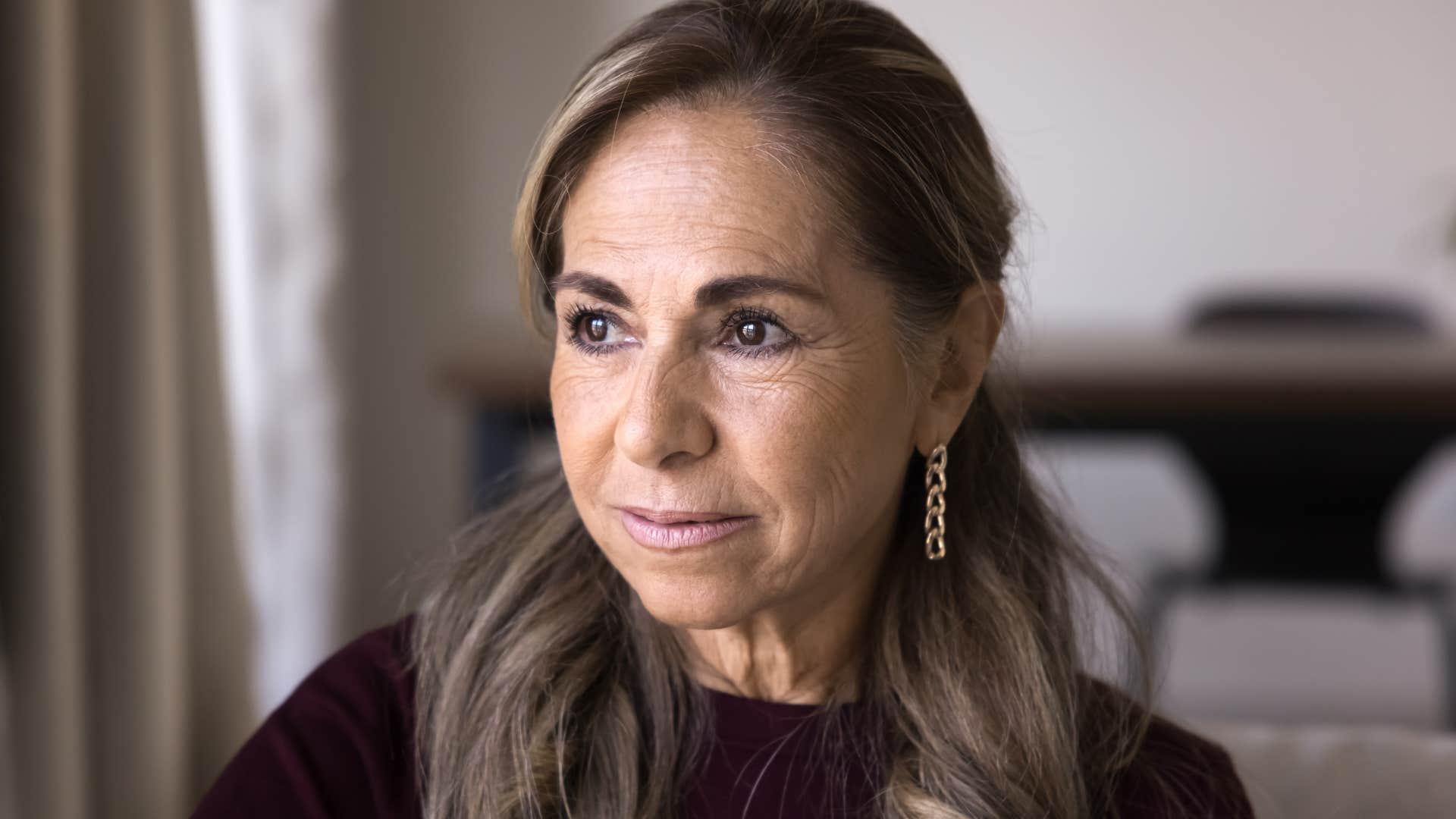People Who Start Canceling Plans Last Minute As They Get Older Usually Have These 11 Reasons
It's not always an inherently bad or disrespectful thing.
 fizkes | Shutterstock
fizkes | Shutterstock While canceling at the last minute, especially in our society that prioritizes the cruelty of convenience at the expense of community and connection, often gets a bad rap, it’s not always an inherently bad thing. Especially if it’s communicated well and comes from a place of good intent, sometimes it’s actually necessary.
We’re human and sometimes we have to cancel plans with people we love. It doesn’t mean we don’t care for them or respect their time, and as long as we’re honest about the reason, these friendships and relationships don’t have to suffer. But sometimes, people who start canceling plans last minute as they get older have more nuanced reasons, like disconnecting from a performative friendship or finally putting their alone time first.
People who start canceling plans last minute as they get older usually have these 11 reasons
1. They value their alone time too much
 Gladskikh Tatiana | Shutterstock
Gladskikh Tatiana | Shutterstock
Many people tend to appreciate their alone time and solitude much more as they get older. They know themselves better, appreciate their own company, and disconnect from relationships that don’t offer them this same kind of calm, solid peace.
People who start canceling plans last minute as they get older may simply appreciate their alone time. They know when they need it for the sake of their own well-being, and they’re not afraid to set boundaries to protect it.
2. They’re ultra-busy with a million responsibilities
 Ground Picture | Shutterstock
Ground Picture | Shutterstock
As we get older and our lives grow, so do our responsibilities. We don’t just have work or school anymore, but household responsibilities, family to take care of, and personal well-being to intentionally look after. Whether it’s feeling drained from the workday or needing time to catch up on everything going on at home, people who start canceling plans last minute as they get older usually have these reasons.
While it might seem like a burden, this level of busyness can often boost and help maintain cognitive skills in aging adults, according to a study from Frontiers in Aging Neuroscience. So, even if it seems like a drag to have to miss out on social events for the sake of tangible tasks, they’re worth something.
3. Their social battery drains quickly
 Bits And Splits | Shutterstock
Bits And Splits | Shutterstock
Introverted people tend to have a social battery that drains quickly in social interactions and requires solitude to recharge. That’s why many introverted people later in life are careful about how they spend their time, often canceling plans last minute when they realize they don’t have the social battery to healthily interact with people — rather than just forcing themselves to go and draining their own energy.
People who start canceling plans last minute may simply be introverted, struggling to find time, and needing to prioritize their own solitude.
4. They’re tired of entertaining superficiality
 Krakenimages.com | Shutterstock
Krakenimages.com | Shutterstock
People who start canceling plans at the last minute may simply be tired of engaging in superficial interactions and entertaining performative friends, just to “fit in” or not be alone. While older demographics often need to be careful about keeping a balance between social and alone time, a study from Innovation and Aging suggests that most adults who spend more intentional time alone later in life boast better well-being and mental health.
When they make the choice to spend thoughtful time alone, over going out and spending superficial time with people who don’t truly care about or support them, that’s an act of self-care — even if it’s uncomfortable to prioritize at first.
5. They’ve stopped feeling guilty for saying ‘no’
 MAYA LAB | Shutterstock
MAYA LAB | Shutterstock
Feeling guilt for saying “no” to social plans or putting other people’s desires above internal needs is rooted in people-pleasing behavior. People who do things they don’t want to for the sake of others or “appeasing” everyone are operating from a place of insecurity — where their life choices are solely influenced by what everyone around them wants.
However, people who start canceling plans last minute as they get older usually stop feeling guilty for saying “no.” As a study in Developmental Psychology explains, self-esteem and self-assurance tend to grow steadily over time and remain strong later in life, which is exactly what a recovering people-pleaser needs to free themselves from the shackles of social guilt and shame.
6. They know how to trust their intuition
 insta_photos | Shutterstock
insta_photos | Shutterstock
According to psychiatrist Judith Orloff, women’s brains are naturally wired for fast decision-making, making intuition part of their natural biology. Especially as they get older, practice following gut instincts more, and develop the self-assuredness needed to follow them with trust, it’s no surprise that they’re more intentional with their time.
People who start canceling plans last minute as they get older usually have these reasons — they know deep down when a social event isn’t going to be healthy for them, when they have better uses for their time, or need alone time to recharge for the next thing.
7. They’re anxious or burnt out
 Inside Creative House | Shutterstock
Inside Creative House | Shutterstock
Avoidance is often associated with anxiety and burnout in ways that can be overlooked by busy friends and loved ones anticipating quality time together. While it might seem like the right thing to do, if a person isn’t spending the time they’ve created from canceling plans resting, it only adds to the stress and strain they’re coping with.
Avoidance in daily life, whether it’s canceling plans, procrastinating, or withholding emotions from conversations with a partner at home, may provide fleeting comfort, but in the long run, it only amplifies stress and anxiety, according to wellness coach Dr. Elizabeth Scott.
8. They’re practicing setting boundaries
 Miljan Zivkovic | Shutterstock
Miljan Zivkovic | Shutterstock
While setting boundaries is often uncomfortable at first for people of any age, as a person’s self-assuredness grows and they learn how to build trust with themselves, setting and maintaining them can grow into a more solidified practice.
Whether it’s canceling plans with friends to protect their energy or being clear with needs in a relationship, the more self-esteem a person has with age, the easier boundaries are to regularly set.
Of course, “boundaries” shouldn’t be a crutch for avoidance or to justify a last-minute cancellation for people you truly love and care about, but they can often give people the empowerment they need to finally put themselves first.
9. They’ve stopped forcing connections
 Krakenimages.com | Shutterstock
Krakenimages.com | Shutterstock
While they might have been prone to people-pleasing for attention or seeking validation from people they didn’t “click” with when they were younger, people who start canceling plans last minute as they get older no longer don’t care about forcing connections.
When a social event overlaps with their responsibilities or they’re drained enough from work, they don’t go out of their way to say “yes” to plans for the sake of attention and validation. They’re comfortable saying “no” and even walking away from relationships that no longer serve them.
10. They’re practicing self-acceptance
 pics five | Shutterstock
pics five | Shutterstock
Whether it’s leaning into alone time with their own company or saying “no” to things that don’t fill their cups, people who start canceling plans last minute as they get older may be practicing radical self-acceptance.
Their worlds are no longer defined by the wishes and needs of others — they’re putting themselves first and loving it. Not only do they understand themselves and make decisions based on how they feel, they’re also learning to accept and embrace all those internal nuances, which adds joy and value to the mundanity of life.
11. They’re feeling emotionally fragile
 fizkes | Shutterstock
fizkes | Shutterstock
On the other side of the coin, if someone is withdrawing from interactions with people they love and acting completely out of character by constantly canceling at the last minute, they could also be emotionally fragile.
Whether it’s the avoidance associated with depression and anxiety or another mental health struggle that’s keeping them disconnected from other people, alongside other red flags, this behavior could be a cry for help.
Zayda Slabbekoorn is a senior editorial strategist with a bachelor’s degree in social relations & policy and gender studies who focuses on psychology, relationships, self-help, and human interest stories.

